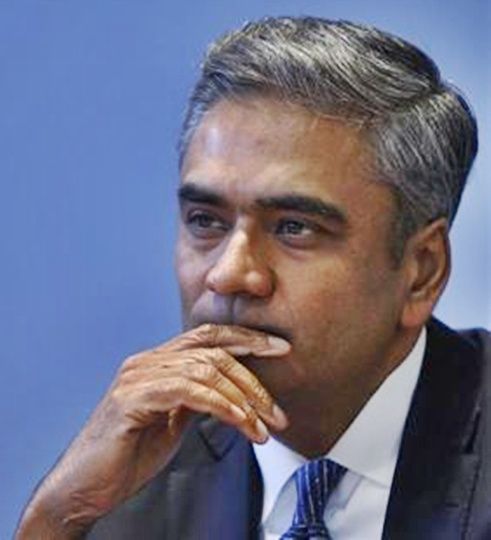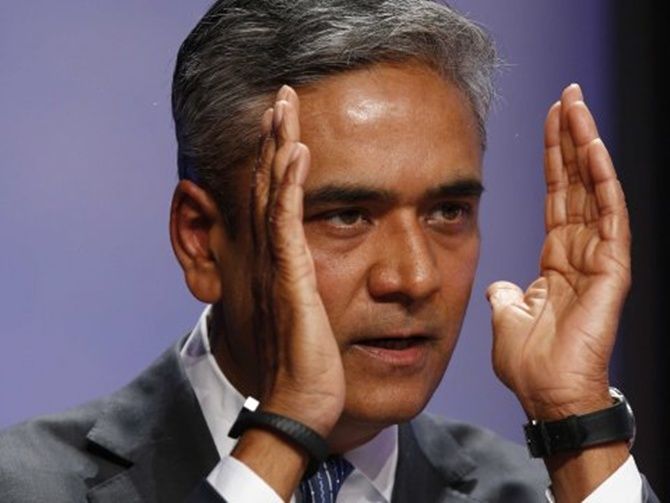The Indian-born Anshu Jain had pushed Deutsche to remain Europe's ‘last man standing’ in investment banking.

Anshu Jain spent 20 years building Deutsche Bank into a global investment bank that rivalled Wall Street's giants.
But once ensconced as co-chief executive in 2012 - a time when regulators and voters raged against the financial industry - he struggled to cut the "global, universal" bank he helped create down to size or get a grip on a long list of scandals.

Jain's efforts ended on Sunday when he and co-Chief Executive Juergen Fitschen both resigned in a shock decision that left Germany's biggest bank and Europe's only rival to Wall Street banks in a state of crisis.
The bank faces high costs, huge fines, a new investigation into Russian money laundering, and a half-finished strategic overhaul now left in limbo as the two CEOs who designed it take their leave.
The Indian-born Jain had pushed Deutsche to remain Europe's "last man standing" in investment banking, well beyond the time when competitors like UBS or Barclays had slashed trading operations and laid off thousands of bankers.

Photograph: Kai Pfaffenbach/Reuters
Jain represented the bank's international aspirations, a handsome, Jaipur-born financier who did his bachelors at the University of Delhi before completing an MBA at the University of Massachusetts in Amherst.
He joined Deutsche in 1995 to launch a division specialising in hedge funds and derivatives.
He then headed bond trading and emerging markets and later, as head of the investment bank, he out-earned his boss, then-CEO Josef Ackermann.
As co-CEO, Jain had access to the highest echelons of power in Berlin and the boardrooms of Europe's largest companies. But as a figurehead in German finance, the English-speaker struggled to win over the German media and population.
 He struck an undeniably awkward pose at this year's AGM, giving a speech in English while German law required that it be done in German.
He struck an undeniably awkward pose at this year's AGM, giving a speech in English while German law required that it be done in German.
To bridge the gap, the bank cut Jain's microphone and ran a German voice-over, triggering a surge of murmurs from the crowd of shareholders and journalists.
Shareholders finished the meeting by chastising Jain and the entire board for their performance, signalling that their patience had run out.
Deutsche Bank has been one of the weakest performers of any major bank since Jain and Fitschen took over as co-chief executives.
Jain and other board members gathered in private after the meeting and he addressed a gathering of senior staff and coordinators, offering an early hint that he was prepared to leave.
"I don't want to stand in the way of the development of the bank and if necessary I will step aside," Jain told them, according to one person present at the gathering. "He was really upset, I mean, really upset."

The 52-year-old Jain doesn't exude the aura of a stiff, conventional banker, rather, college-boy charm with a black backpack sometimes slung over one shoulder in lieu of a leather briefcase.
During his CEO tenure, Jain took constant flak for being at the helm of the investment bank during the go-go years. Jain was never directly implied in any wrong-doing in the multitude of investigations by regulators.
He oversaw an investment bank known as a "flow monster" for the enormous volumes of currencies, bonds and interest-rate products it sold.

It also aggressively traded its own portfolio of risky assets, so much so that some critics before the crisis described Deutsche a hedge fund with a bank attached.
The bank was one of the most advanced players in structured securities, where financial engineers designed the most complex derivatives, many of which proved worthless in the financial crisis.
This legacy came to haunt the bank. Long after regulators worldwide had launched a crackdown on banks and bankers, Deutsche Bank was still struggling to change a business culture focused on big profits - not client satisfaction.
(Additional reporting by Arno Schuetze)












 © 2025
© 2025